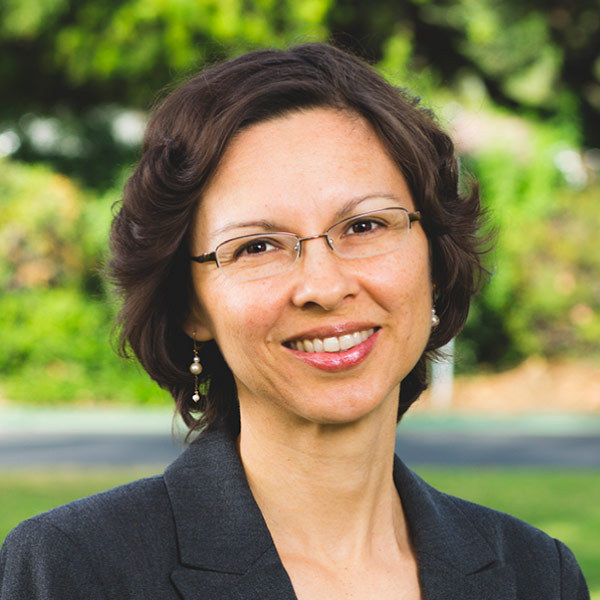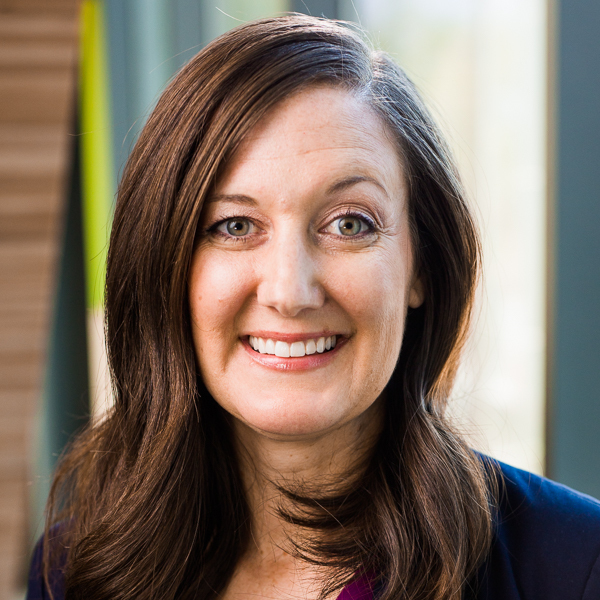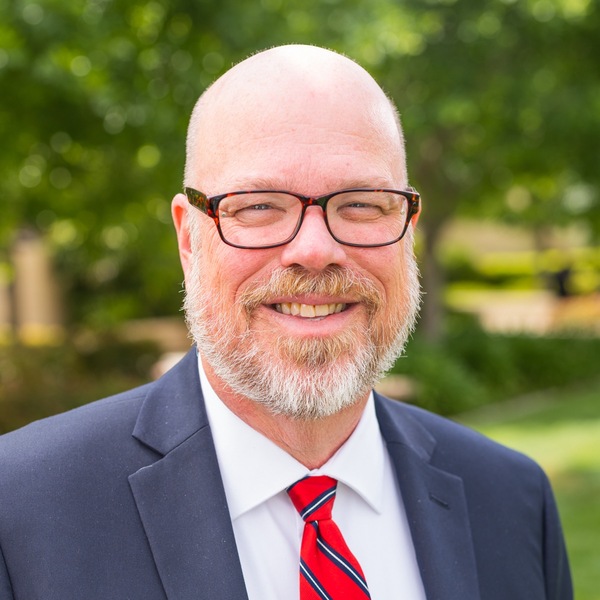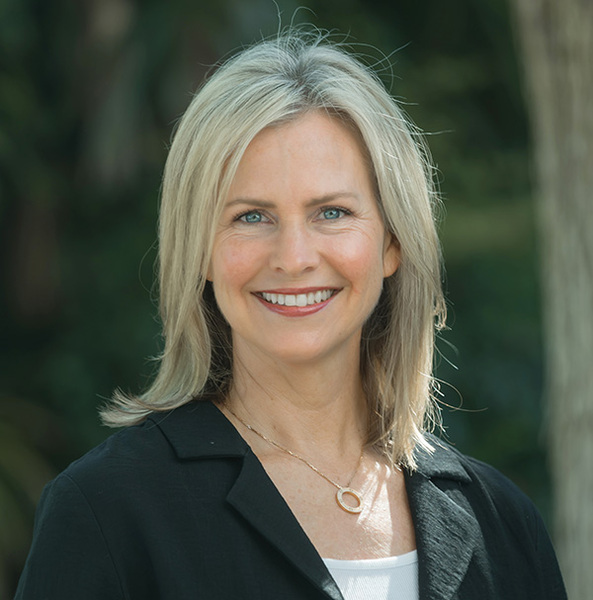Post-Baccalaureate Certificate in Communication Sciences and Disorders
Post-Baccalaureate Certificate in Communication Sciences and Disorders


Program at a Glance
Format
On Campus
Total Credits
30 credits
Cost per Credit
$425 (program courses only)
Standard Completion Time
10 months (2.5 semesters)
Accreditation
WSCUC
Overview
The Post-Baccalaureate Certificate in Communication Sciences and Disorders program is designed for people who want to pursue a career in speech-language pathology, but need the undergraduate leveling courses to apply for a master's degree program because they graduated with a major that was not in communication sciences and disorders.
This on-campus program is only intended to complete the prerequisites for entering a Master of Science program in Speech-Language Pathology, like the M.S. in Speech-Language Pathology (SLP) offered by Biola University.
- Infuse Faith into Work. This is one of very few Christian programs offered in the country. Every course is designed to integrate a biblical perspective with the industry training you need to be a licensed, successful speech-language pathologist.
- Seasoned SLP Mentors. Be trained by professional faculty who are experts in preparing students to become communication sciences and disorders professionals. With extensive clinical expertise in speech, language and swallowing disorders, they offer hands-on training, research avenues and instill ethical practices. Faculty teach both undergraduate and graduate courses, ensuring a unified learning experience.
Yes! Tell Me More!
Courses
What will I study in the post-baccalaureate certificate program?
Biola’s post-baccalaureate certificate in communication sciences and disorders includes 30 credits of coursework along with 25 hours of observation. Some of your courses include:
Anatomy and Physiology of Speech and Hearing (CDSR 481)
Anatomy and physiology of the speech and hearing mechanisms. The normal processes of respiration, phonation, articulation, resonance and hearing are covered. Grade Mode: A.
Neuroanatomical Foundations for Communication Disorders (CDSR 483)
An in-depth analysis of the nervous system as it pertains to communication and communication disorders. In addition, various neurological disorders will be surveyed that can affect communication. These include, but are not limited to, ALS, Parkinson's disease, stroke, brain tumor, etc. Grade Mode: A.
Aural Rehabilitation (CDSR 488)
Review of management procedures used by professionals for the rehabilitation/habitation of persons with hearing impairments. Includes speech reading, auditory training, hearing aids and other communication systems and assistive listening devices. Grade Mode: A.
Career Outlook and Preparation
According to the Bureau of Labor Statistics, speech-language pathologists typically need at least a master’s degree in speech-language pathology, like the M.S. in Speech-Language Pathology (SLP) offered by Biola University. All states require licensure and requirements vary by state.
If you are interested in learning more about the speech-language pathology field, explore the career page on the American Speech-Language Hearing Association (ASHA) website or the resources at speechpathology.org.
U.S. News & World Report 2024
- Ranked #3 in Best Health Care Jobs
- Ranked #10 in 100 Best Jobs
19% job growth
According to the Bureau of Labor Statistics, job growth for speech-language pathologists is projected to be much faster than average between 2022 and 2032.
BLS projections are not specific to Biola University students or graduates.
Admissions & Deadlines
As a Christian institution, Biola seeks to admit applicants whose backgrounds clearly demonstrate scholarly aptitude, a commitment to the historic Christian faith, personal character and integrity, and a positive service-oriented motivation toward their field of study. Biola does not discriminate on the basis of the applicant's race, color, sex, socio-economic status, disability, or national or ethnic origin.
Education and GPA Requirements
- You must have a bachelor’s degree from an accredited institution by the time you plan to start coursework at Biola, with a minimum grade point average of 3.0 (on a 4.0 scale).
- Note: If you do not meet the degree or GPA requirements above, you may still be considered for admission. Please contact the Office of Graduate Admissions office at graduate.admissions@biola.edu. If you are an international student, contact grad.international@biola.edu.
Prerequisites
- Completed prerequisite courses in the following areas:
- One course in college-level human or general biology
- One course in college-level physical science (physics or chemistry)
- One course in college-level statistics
- One course in college-level developmental psychology (lifespan)
Note: These prerequisites courses are not needed for admission into the Post-Baccalaureate CSD program, but will be needed for admission into the M.S. in Speech-Language Pathology (SLP) program. These prerequisites can be taken as part of your Post-Baccalaureate CSD studies.
English Proficiency Requirements
- If English is not your first language, you are required to display your English proficiency before admittance into a Biola University graduate program. See “English Proficiency” in the application steps section below.
Application Deadlines
- Fall Semester: July 1
Visit Biola
Explore our sunny Southern California campus in person or virtually. Learn more about your program of interest and the admissions process by scheduling an appointment with an admissions counselor.
Meet Your Admissions Counselor
If you have more questions about the program, admissions process or Biola in general, schedule a phone call or send an email to your admissions counselor.
Graduate Admissions Counselor
International Graduate Admissions Counselor
The Office of International Admissions serves students who are not citizens or permanent residents of the United States.
Email: grad.international@biola.edu
Book a Phone or Virtual Appointment
Application Steps
Complete and submit the online application
Submit a non-refundable $65 application fee
Submit supplemental application materials through your online application portal:
- Submit all official transcripts from previous academic institutions.
- Request official transcripts from all colleges and universities attended.
- If enrolled at the time the application is filed, be sure to request transcripts of work finished to date and final transcripts upon completion of your course of study.
- Transcripts will be considered official only when a) mailed directly from the institution to Biola, b) sent electronically through an approved vendor or c) physically delivered in an untampered envelope sealed by the institution. Final approval for admission is contingent on receiving an official transcript.
- Mail transcripts to:
Biola University Office of Graduate Admissions
13800 Biola Avenue, La Mirada, CA 90639
- Mail transcripts to:
- International Transcripts: All international transcripts should be evaluated by a credential evaluation agency like SpanTran (Biola Discount), World Education Services (WES) or Foundation for International Services (FIS). Be sure to choose "course by course report" and have SpanTran/WES/FIS send them directly to Biola University via online portal or post (13800 Biola Ave, La Mirada, CA 90639) in order to be considered official.
- Spiritual leader/mentor recommendation
- Academic/character/mentor recommendation
- Note: Additional instructions can be found in the online application.
- Christian testimony
- Prompt: Please submit a 1–2 page essay explaining in your own words: 1) the circumstances surrounding your decision to become a follower of Christ, 2) the scriptural basis for your salvation, 3) your contribution to a local church community, and 4) describe how you display attributes of a mature Christian.
- Vocational objective
- Statement of vocational intent should address the following questions in 1,000 words or less. No specific formatting is required.
- Note: The essay prompts can be found in the online application.
- Evidence of English proficiency is required for all students to support student success. Proficiency must be shown through one of the methods described below:
- Minimum test score on a qualifying standardized test
- TOEFL: minimum score of 90 iBT
- IELTS: minimum score of 7.0
- Duolingo: minimum score of 125
- A degree (bachelor’s, master’s or doctoral) issued by an institution where English is the medium of instruction.
- Official written communication from the institution (Registrar, Controller of Examinations Office, or Undergraduate College)
- Official degree statements or transcripts may be accepted given English is stated as the medium of instruction
- Official catalog verification
- Note: For universities from non-Anglophone countries, further language assessment may be required.
- Minimum test score on a qualifying standardized test
- Track your application status at any time. You do not have to complete the application in one sitting. You can complete a portion and finish at a later time. Your information will be saved. When you apply, to guarantee confidentiality, you will be asked to create a user name and a password, and will receive a personalized identification number. Track your application status by logging in to the online application.
- Official documents presented for admission or evaluation become part of the student’s academic file and normally cannot be returned or copied for distribution.
- International students who will be studying on campus are required to apply for an F-1 student visa. For more information, visit biola.edu/international/admitted-students.
Official Transcripts
Two Reference Letters
Two Essays
English Proficiency (required for non-native English speakers)
Things to Note
Tuition and Financial Aid
Note: Federal financial aid is not available for this program. However, you can apply for the Sallie Mae Smart Option Loan to help finance your education.
| Cost Per Credit (2024‑25) Program courses only | $425 |
|---|---|
| Total Program Tuition (Estimated) Based on total program credits and 2024‑25 cost per credit | $12,750 |
Faculty

Yvana Uranga-Hernandez
Associate Professor of Communication Sciences and Disorders
- Ph.D., Educational Studies, Talbot School of Theology, Biola University
- M.A., Speech-Pathology, California State University, Los Angeles
- M.S., Educational Administration, California State University, Fullerton
- B.A., Communicative Disorders, California State University, Fullerton

Teri Clemons
Program Chair of Communication Sciences and Disorders
- SLP.D., Nova Southeastern University
- M.S., University of Redlands
- B.A., Biola University

Matthew Rouse
Dean, School of Science, Technology and Health
- SLP.D., Nova Southeastern University
- M.A., Biblical & Theological Studies, Talbot School of Theology
- M.A., Christian Apologetics, Biola University
- M.S., Communicative Disorders, University of Redlands
- B.S., Biological Sciences, University of Redlands
FAQs
What makes this post-baccalaureate certificate in Communication Sciences and Disorders program different from other programs?
This program is one of the very few Christian Post-Bacc CSD programs in the country. And due to Biola being located in Southern California, you'll have access to diverse surroundings and people.
Is the GRE required?
No, the GRE test is not required to apply for the post-baccalaureate certificate in Communication Sciences and Disorders.
Can I take only one course?
This is possible but please contact the program's admissions counselor for additional details.
Can I work full-time and take classes?
Yes, it is possible for students to work full time and take classes concurrently.
Will completion of this certificate make me eligible to apply to a Master’s in Speech-Language Pathology program at any university?
After completing the certificate from Biola University, you can apply to any university with a Master's in Speech-Language Pathology program (explore Biola's M.S. in Speech-Language Pathology program). It is possible another university may have a unique requirement, so be sure to check the website of any graduate program you are interested in.
Are the courses considered undergraduate or graduate courses?
They are undergraduate-level courses.
Can I co-enroll in this program at Biola?
No, only students who have already completed a baccalaureate degree can apply.
